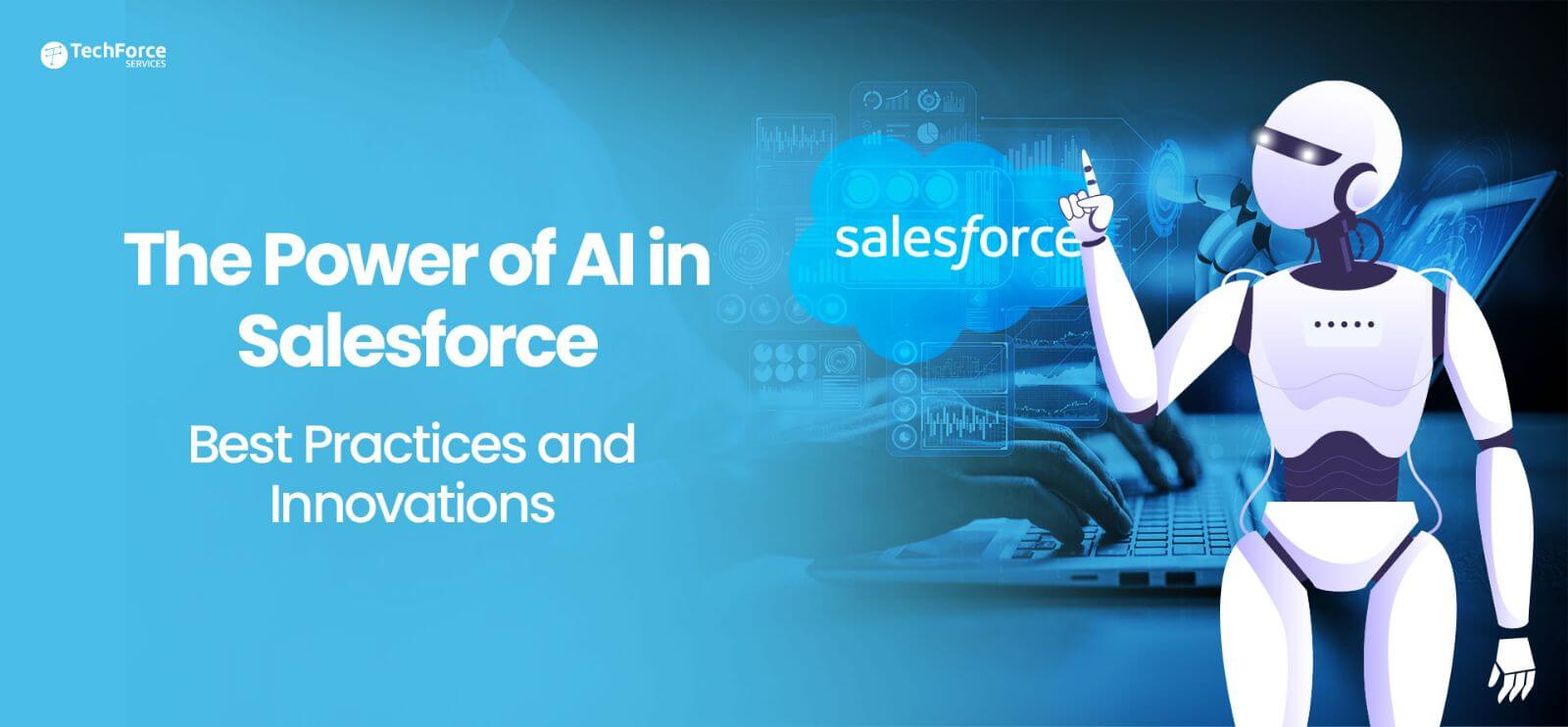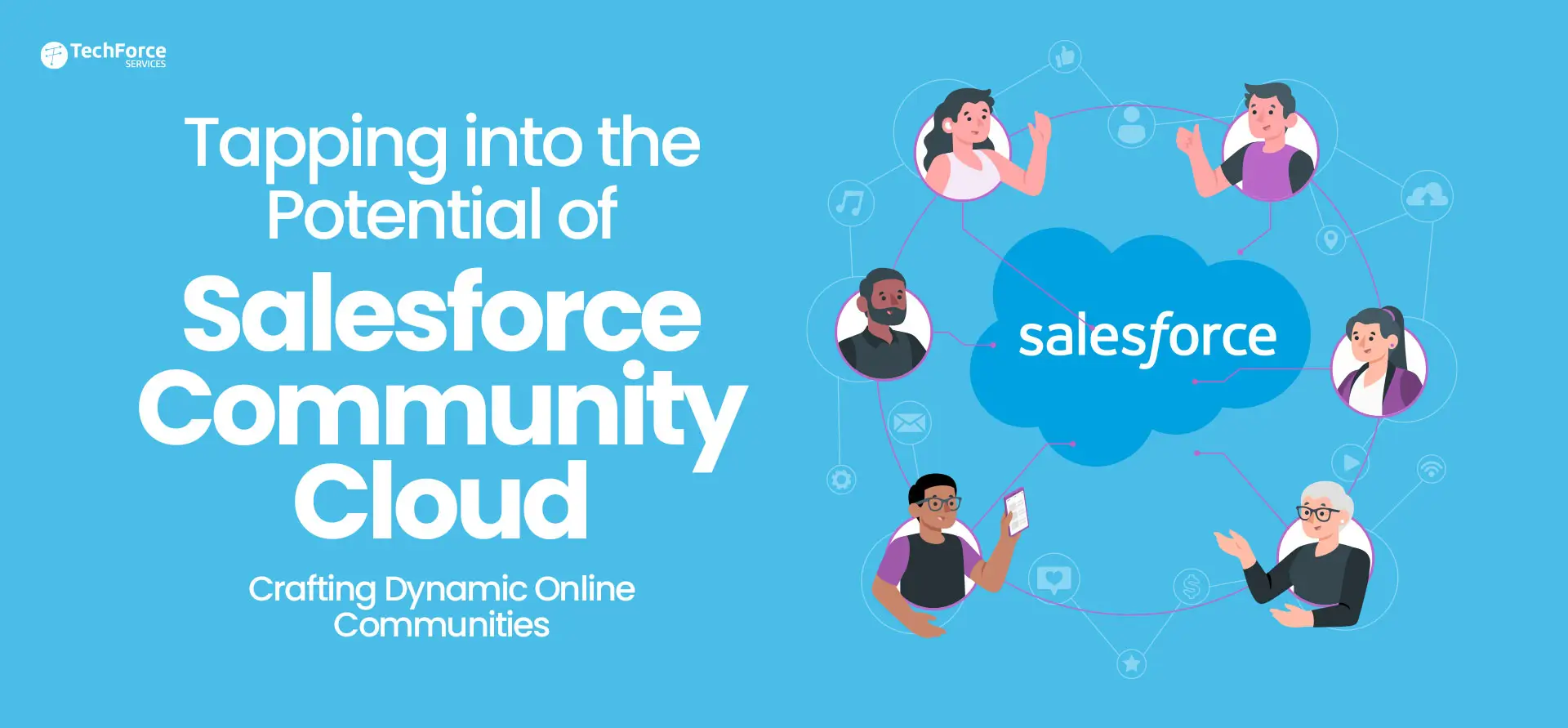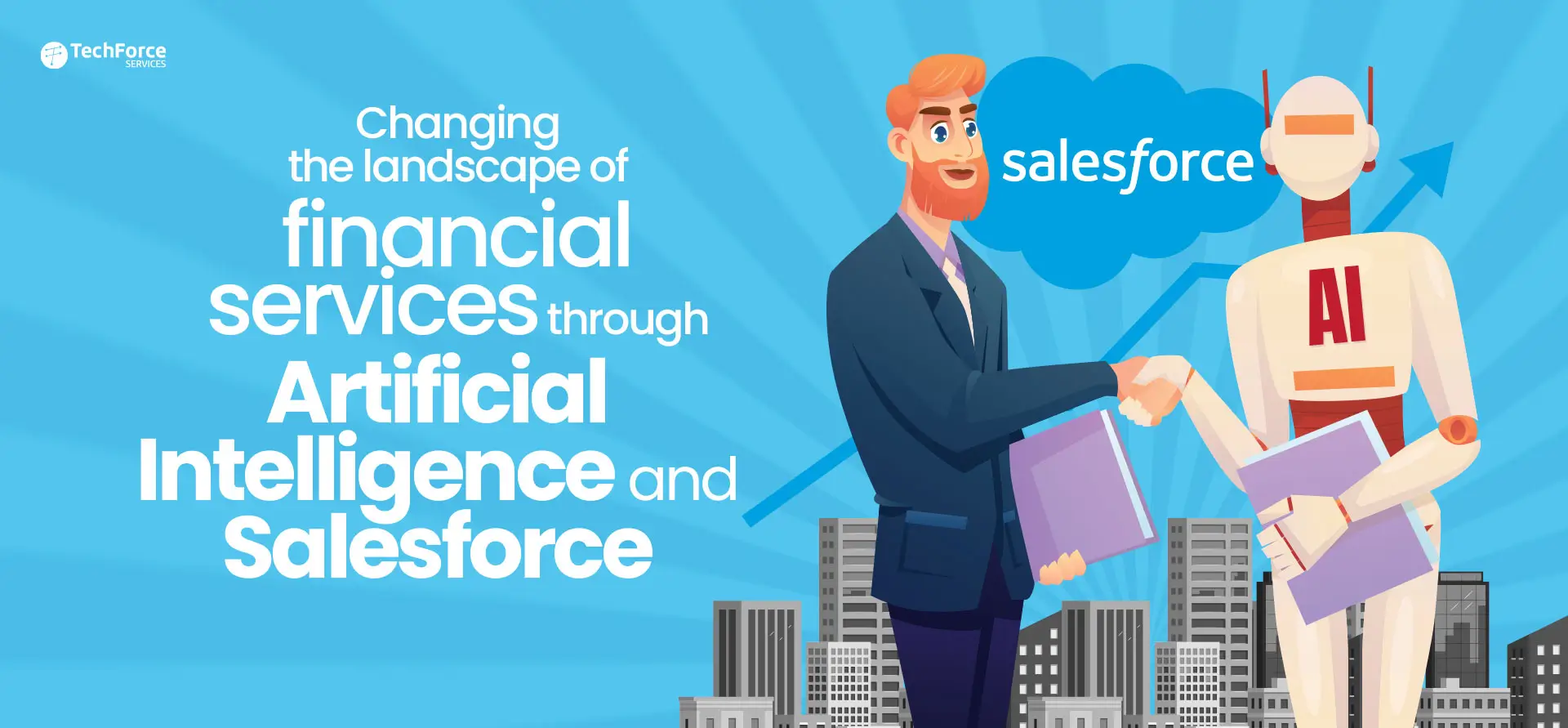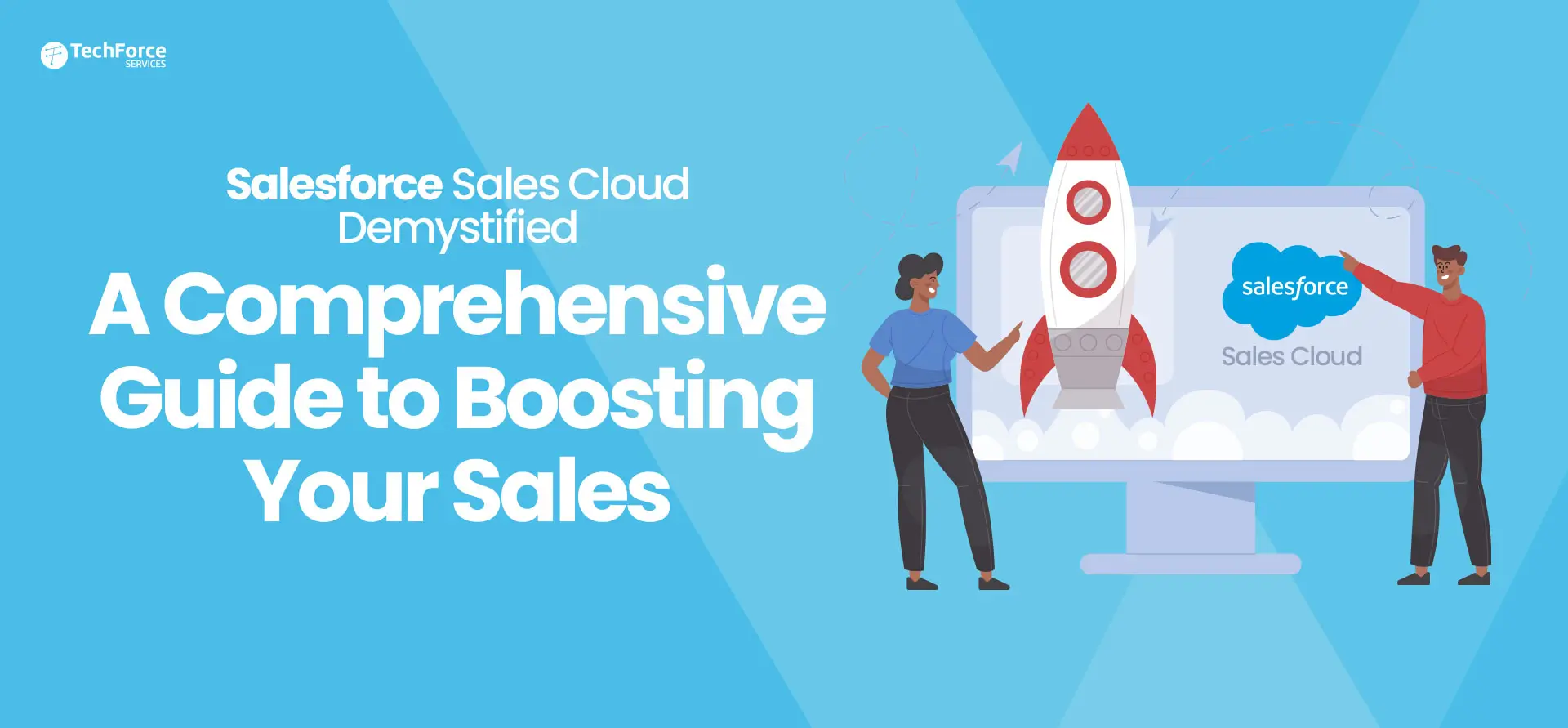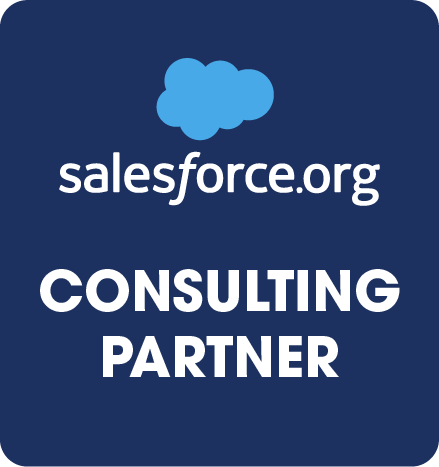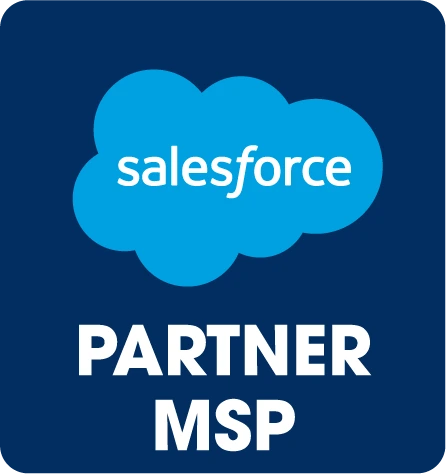Many businesses need help with time-consuming, repetitive tasks, slow decision-making processes, and challenges in delivering outstanding customer experiences.
According to Salesforce’s recent statistics, 61% of workers now use generative AI solutions to address these challenges. The demand for AI-driven efficiency and time-saving solutions is more evident than ever.
By recognizing this pressing need, Salesforce has seamlessly integrated artificial intelligence into its platform through Einstein.
In this article, you’ll learn how this AI integration in Salesforce empowers businesses to not only automate mundane tasks but also make swift, data-driven decisions and elevate their customer service to unparalleled heights.
Benefits of AI Integration in Salesforce
Integrating artificial intelligence (AI) in Salesforce brings numerous benefits to businesses. Here are the benefits of leveraging AI capabilities through Salesforce’s Einstein feature:
- Businesses can automate repetitive tasks, saving time and effort for their teams.
- AI provides valuable insights and analytics, enabling businesses to make data-driven decisions and deliver personalized customer experiences.
- Businesses can build stronger relationships and exceed customer expectations by getting a deeper understanding of customer behavior and preferences.
- AI integration in Salesforce empowers businesses to streamline processes, improve efficiencies, and achieve business goals.
6 AI Innovations in Salesforce
Salesforce Einstein Analytics
Einstein Analytics uses AI to provide valuable insights into customer behavior and preferences. Here are its features:
- Customizable Dashboards: Users can create tailored dashboards to visualize data in ways that are most relevant to their roles and objectives.
- Data Integration: Seamlessly integrates with various data sources within and outside of Salesforce, ensuring a holistic view of business operations.
- Predictive Insights: Offers predictive analytics to forecast future trends, helping businesses stay ahead of the curve and make proactive decisions.
- Automated Data Discovery: Automatically identifies patterns, trends, and correlations within the data, eliminating manual analysis.
- Mobile-First Design: Designed for on-the-go access, users can access insights and dashboards from any device, anytime.
- Actionable Recommendations: Not just insights, but Einstein Analytics also provides actionable recommendations to drive business growth and efficiency.
- Enhanced Security: Ensures data protection with enterprise-level security features, giving businesses peace of mind.
- Collaboration Tools: Integrated collaboration tools allow teams to share insights, discuss trends, and make collective decisions quickly.
Einstein Prediction Builder
Einstein Prediction Builder in Salesforce enables users to create custom AI models for data analysis. Here’s a brief overview of its capabilities and benefits:
- Custom AI Models: Users can build AI models tailored to their business needs without requiring any code. This democratizes AI, making it accessible to a broader range of users.
- Predictive Insights: With Einstein Prediction Builder, businesses can forecast outcomes for any field in Salesforce, helping them anticipate future trends and make data-driven decisions.
- Seamless Integration: The tool integrates seamlessly with Salesforce data, ensuring predictions are based on comprehensive and up-to-date information.
- Actionable Recommendations: Beyond predictions, Einstein Prediction Builder provides actionable recommendations, enabling businesses to take proactive steps based on the insights generated.
- User-Friendly Interface: The tool offers a drag-and-drop interface, making it easy for users to define the parameters of their predictions and set up their AI models.
- Enhanced Decision Making: By providing accurate predictions on sales, customer behavior, and other vital metrics, businesses can optimize their strategies and improve overall performance.
Einstein Vision
Salesforce Einstein Vision is a potent AI tool that transforms image recognition within Salesforce. It has a range of features like:
- Image Classification: Einstein Vision can categorize images into predefined classes, making it easier for businesses to organize and analyze visual data.
- Object Detection: It identifies and locates multiple objects within an image, providing detailed insights into the visual content.
- Brand Detection: Companies can use Einstein Vision to monitor their brand’s social media and web presence by identifying logos and brand imagery.
- Custom Models: Businesses can train custom models to recognize specific visual patterns and elements tailored to their needs.
Einstein Language
Einstein Language is a potent natural language processing (NLP) tool that enhances Salesforce’s chatbots and services. Here are some of the key features:
- Natural Language Processing (NLP): Einstein Language understands and interprets human language, making it easier for businesses to analyze text from emails, social media, and other communication channels.
- Sentiment Analysis: It can gauge the sentiment behind customer communications, categorizing them as positive, negative, or neutral. This helps businesses respond more effectively to customer feedback and concerns.
- Intent Recognition: Beyond just understanding words, Einstein Language can determine the intent behind them. For instance, it can differentiate between a customer inquiry and a complaint, allowing for tailored responses.
- Customizable Models: While it comes with pre-trained models, businesses can train Einstein Language on custom datasets, ensuring it understands industry-specific terminologies and nuances.
Einstein Recommendations
Einstein Recommendations is a powerful feature in Salesforce that leverages artificial intelligence to provide personalized content and product recommendations based on customer data.
- Personalized Experiences: Utilizes machine learning to analyze user behavior, preferences, and historical data to offer tailored product and content recommendations.
- Increased Engagement: Presenting users relevant content and products boosts engagement rates and enhances the overall user experience.
- Seamless Integration: Integrates into Salesforce platforms, ensuring that recommendations are consistent across all touchpoints.
- Real-time Analysis: Continuously learns from user interactions, ensuring the recommendations are up-to-date and relevant.
- Optimized Conversions: Presenting the most relevant products or content to users increases the likelihood of conversions and sales.
Einstein Bots
Einstein Bots are Salesforce’s AI-driven chatbots designed to automate and enhance customer interactions. These bots are built on the Salesforce platform and are integrated seamlessly into the customer service workflow. Here are some key features and benefits:
- Natural Language Processing (NLP): Einstein Bots understand and interpret customer queries using NLP, allowing for more human-like interactions.
- Automation of Routine Tasks: They can handle common customer inquiries without human intervention, such as checking order status or resetting passwords.
- Seamless Handoff: If a bot cannot resolve a query, it can seamlessly transfer the conversation to a human agent, ensuring that the customer’s issue is addressed.
- Customizable: Businesses can tailor Einstein Bots to their specific needs, defining the bot’s responses, actions, and the scenarios it can handle.
- Data Integration: Einstein Bots can access and retrieve data from Salesforce, providing customers real-time information.
- Continuous Learning: As they interact with customers, Einstein Bots learn and improve over time, offering better and more accurate responses.
Related Read: A Primer to Salesforce Einstein
4 Best Practices for Implementing AI in Salesforce
To ensure successful integration and maximize the benefits of AI, there are several best practices that businesses can follow.
Data Quality: Ensuring Clean and Accurate Data for AI models
Incorporating artificial intelligence (AI) into Salesforce hinges on maintaining clean and precise data. AI relies heavily on data for generating valuable insights and informed decisions. Hence, organizations must emphasize data quality to harness AI’s potential fully.
Organizations need reliable and diverse training data consolidated on a single platform to enable adequate understanding and prediction of customer behavior. Collecting data from various sources like customer interactions, marketing campaigns, and sales activities offers a comprehensive customer view, enhancing overall customer experiences.
However, challenges like data silos, where valuable data is scattered across systems and departments, must be tackled. Prioritizing data quality empowers AI for faster and more accurate decision-making. With clean, precise data centralized on a single platform, businesses can access actionable insights and provide exceptional customer experiences.
User Training: Educating Teams on AI Capabilities and Usage
Integrating AI into Salesforce offers various advantages, but organizations must prioritize user training for optimal benefits. User training is crucial because it equips employees with the knowledge and skills needed to use AI tools in Salesforce effectively. This understanding empowers them to make informed decisions, enhance customer engagement, and boost satisfaction.
Additionally, user training addresses concerns and resistance to AI adoption. Employees may be unfamiliar with or skeptical about AI, fearing job displacement. Comprehensive training dispels myths, alleviates concerns, and instills confidence in employees to embrace AI.
Furthermore, user training enhances user adoption. When employees are confident using AI tools, they are more likely to integrate them into their daily tasks, leading to broader acceptance of AI within the organization and realizing its transformative potential.
Continuous Monitoring: Regularly Checking AI Model Performance
Continuous monitoring involves assessing AI models’ performance to ensure optimal functioning and accuracy. This is especially important in customer engagement and sales, where accurate AI-driven insights are vital for informed decisions.
Ongoing monitoring provides several advantages. It helps maintain the integrity and reliability of AI systems by quickly identifying anomalies or inaccuracies and taking corrective actions.
Furthermore, it allows organizations to proactively address potential issues or biases by identifying patterns and trends, ensuring fair and unbiased AI-driven insights.
Ethical Considerations: Addressing Bias and Fairness in AI Implementations
As AI technology advances and integrates into various industries, including customer engagement and sales, organizations must consider ethical implications, focusing on fairness and bias prevention.
To ensure fairness, training, and testing AI algorithms using diverse and representative data is crucial to preventing discrimination and biased outcomes.
Additionally, organizations should establish guidelines and policies promoting responsible AI usage. Regularly monitoring and evaluating AI model performance is essential to proactively identify and rectify biases or inaccuracies.
Potential Pitfalls of AI Integration and How to Overcome Them
Integrating AI into Salesforce offers numerous benefits but comes with significant challenges.
- Disruption of existing workflows may meet resistance from employees accustomed to current processes. Careful planning and employee involvement are crucial to ease this transition.
- Employee training and upskilling, as AI technology demands specialized knowledge and skills. Organizations must invest in training programs to enable employees to use AI tools and adapt to new work methods.
- Building trust and ensuring responsibility are also vital. The quality of AI algorithms relies on accurate, unbiased, and ethically sourced data. Transparent communication and clear policies are essential to establish trust and ensure responsible AI use.
- Data security is paramount due to handling sensitive customer data during AI integration. Organizations must prioritize data security and implement robust measures to protect against breaches and unauthorized access.
Addressing Concerns About Data Privacy and Security
Data privacy and security are paramount when integrating AI technology into business operations. Organizations must proactively address concerns, protect customer data, and comply with regulatory requirements.
- Prioritize Data Security: Implement robust security measures like firewalls and multi-factor authentication to protect customer data.
- Follow Regulatory Compliance: Stay updated with data privacy regulations (e.g., GDPR, CCPA) and align AI strategies accordingly.
- Identify and Resolve Security Concerns: Monitor for security issues, have an incident response plan, and conduct security audits.
- Implement Access Governance: Control data access with strict permissions to authorize users appropriately.
- Govern AI Tools: Assess AI vendors, ensure security practices align with standards, and monitor their performance.
- Use Data Encryption: Encrypt customer data throughout its lifecycle to maintain confidentiality and integrity.
3 Future Trends for AI in Salesforce
Artificial intelligence (AI) has proven to be a powerful tool in Salesforce, enabling organizations to enhance customer experiences, automate tasks, and gain valuable insights. However, the journey of AI in Salesforce is far from over. Several exciting trends will shape the future of AI in Salesforce, further revolutionizing how businesses engage with customers and drive success.
1. Predictive Analytics
Predictive analytics enables businesses to make informed decisions and take proactive steps toward success by analyzing and understanding data patterns, trends, and correlations.
One of the key benefits of using predictive analytics in Salesforce is its ability to facilitate proactive testing. Organizations can utilize AI models to identify high-risk areas that need immediate attention and optimize their test coverage accordingly.
However, Salesforce testing comes with its own set of challenges. With complex workflows, frequent deployments, and evolving business needs, testing each aspect of the system can be challenging.
This is where AI steps in to assist. AI-powered predictive analytics can automate and streamline testing processes, allowing organizations to identify critical areas efficiently and prioritize their testing efforts.
2. Integration of AI in Salesforce Mobile Applications
Integrating AI into Salesforce mobile applications is a significant advancement for businesses, offering enhanced functionality and user experiences. It enables personalized recommendations based on user data, improving engagement and sales.
Voice commands through AI make app interaction hands-free and convenient. Image recognition allows users to analyze photos, which is particularly useful in industries like retail for product information retrieval. AI in Salesforce mobile apps brings innovation and customization to a new level.
This technology can be particularly valuable in industries such as retail, where users can snap a picture of a product and instantly receive information about it, including pricing and availability
3. Expansion of AI in Salesforce Cloud Services
AI integration in Salesforce spans various Salesforce Cloud services, impacting sales, service, marketing, and collaboration. In Sales Cloud, AI enhances sales with predictive analytics and personalized recommendations.
In Service Cloud, AI elevates customer support with chatbots and proactive assistance. Marketing Cloud benefits from AI-driven campaigns and automation. Collaboration Cloud uses AI to boost teamwork and productivity.
Get Started with Salesforce Einstein
Final Thoughts
AI has a transformative potential in Salesforce, benefiting various aspects of customer relationship management (CRM). It empowers sales and service teams in the Sales Cloud and Service Cloud by providing insights for informed decision-making, faster deal closures, and personalized customer support.
In the Marketing Cloud, AI facilitates data-driven marketing campaigns and automates tasks, allowing marketers to focus on strategy. Embracing AI in Salesforce is essential for staying competitive and meeting evolving customer expectations.
Ultimately, by enhancing CRM capabilities by utilizing the power of AI, businesses can deliver exceptional experiences that drive business growth and customer trust.

